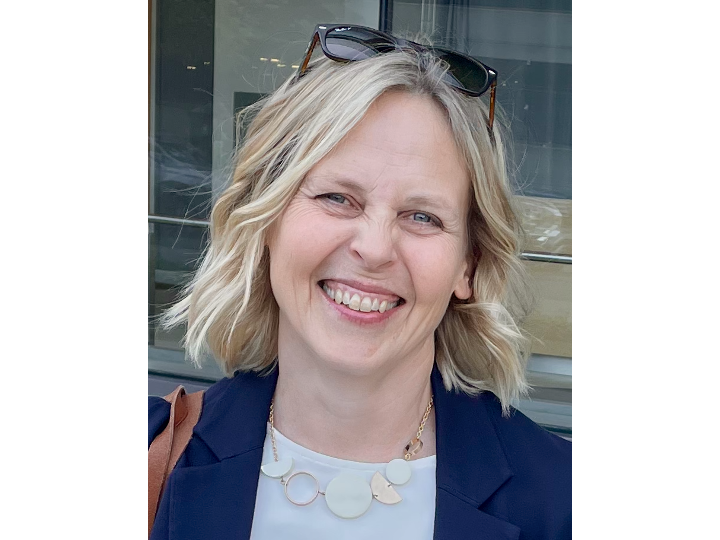
The Department of Pharmacology and Toxicology is pleased to welcome Dr. Ebba Kurz as a Professor (Teaching Stream), effective September 1, 2024.
Dr. Kurz comes to the University of Toronto from the University of Calgary where she held the tenured rank of Professor in the Cumming School of Medicine’s Department of Physiology and Pharmacology and served ten years (2013-2023) as Associate Dean (Undergraduate Health and Science Education) and Director, O’Brien Centre for the Bachelor of Health Sciences Program. Her research program focused on DNA topoisomerases, chemotherapeutic efficacy and the DNA damage response. Additionally, she has published in the areas of universal design for learning, inquiry-based curricular design and challenges to academic integrity. Dr. Kurz is an award-winning educator, mentor and educational leader, having earned several of the University of Calgary’s top awards, including the McCaig-Killam Teaching Award, the Killam Undergraduate Mentorship award, the University of Calgary Award for Educational Leadership and a University of Calgary Students’ Union Teaching.
To get to know Dr. Kurz better, we asked her the following questions:
What inspired you to pursue this career?
As the daughter of a scientist and an engineer, I have known since early childhood that science would be central to my life. Although I am passionate about bench science, I recognized early on that I equally enjoyed mentoring and teaching others and understanding how people learn. My career has evolved organically, and I have followed opportunities as they arose. I think you must be flexible in life and follow paths that play to your strengths. It has led me to embrace new challenges, which keeps you motivated and engaged.
What opportunities excite you most in your field?
We are at an inflection point in education. The rise of AI tools, the pervasiveness of false narratives but with a wealth of information at our fingertips on a device that fits in our pocket means that we must radically rethink how we engage with students and how we guide them to not overlook the importance of critical thinking. As a collective, we need to radically reimagine assessment. This is difficult for many faculty members and will require a significant investment of time and energy; however, we can’t be afraid of doing things differently.
What impact do you hope to make?
In his book A Dictionary of Obscure Sorrows, John Koenig coined the term Watashiato, a noun that he defines as “curiosity about the impact you've had on the lives of the people you know, wondering which of your harmless actions or long-forgotten words might have altered the plot of their stories in ways you'll never get to see.” I love this idea. I simply hope that my accomplishments, or my work with students has had a positive impact, even if I never get a chance to know how this manifests in someone else’s life.
Do you have any extracurricular interests?
Knitting – it is my zen – the thing I do to quiet my soul. At the moment, I’m also enjoying exploring Toronto with my husband and finding great hidden gems. Recommendations always welcome!
How would you describe your teaching philosophy?
“The function of education is to teach one to think intensively and to think critically. Intelligence plus character – that is the goal of true education.” Martin Luther King, Jr.
Learning is an active process. To learn effectively and deeply, one must feel engaged in the subject at hand, motivated to understand its foundations and encouraged both to explore connections across disciplines and to find parallels in everyday life. This is a particular emphasis in my teaching. By incorporating examples of day-to-day relevance or using off-the-wall but genuine cases to illustrate core concepts, I can pique student interest, motivating them to be curious, to engage in class discussions, as well as group and individual assignments. It is important to me that students take interest in and see value in what I am teaching, and I am particularly pleased when I hear students continuing their discussions even when class is over for the day. In my classroom, I strive to create a respectful space in which my students and I can engage in discussion - where students feel safe stepping out of their comfort zones. Rather than merely being an expert imparting knowledge, I view myself as a facilitator of learning. I actively encourage my students to focus on concepts, drawing parallels and thinking critically rather than accepting information at face value or transiently cramming for regurgitation on tests. I aim to coax and cultivate the learner in each of us.
